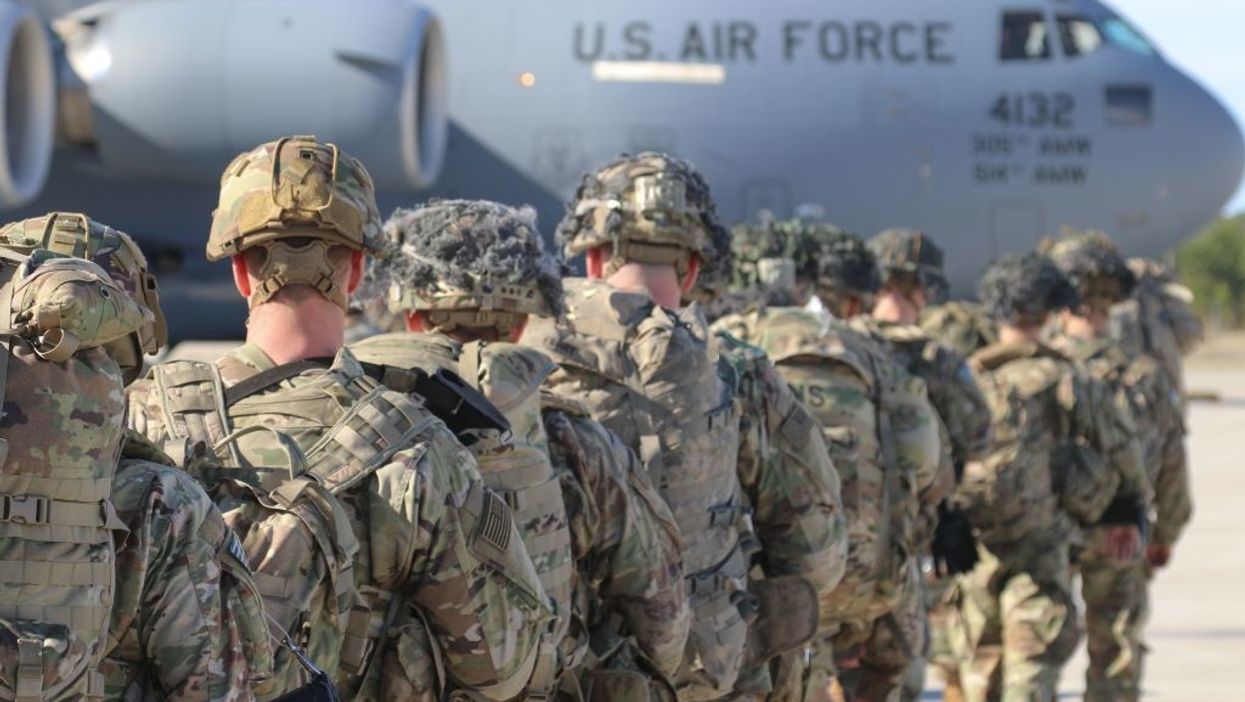
Photo by CAPT. ROBYN HAAKE/US ARMY/AFP via Getty Images

'America is a force for good in the Middle East'
Iraq's prime minister on Friday asked the U.S. to begin the process of withdrawing troops from the country, less than a week after the Iraqi Parliament voted to end the American military's yearslong presence there. But it appears the U.S. does not intend to comply.
Iraqi Prime Minister Adel Abdul-Mahdi announced the news in a statement Friday, NBC News reports. Mahdi said he asked U.S. Secretary of State Mike Pompeo "to send a delegation to Iraq to put a mechanism [in place] for implementing the Iraqi parliament decision to safely withdraw troops from Iraq."
The request came because "Iraq is keen to keep the best relations with its neighbors and friends within the international community, and to protect foreign representations and interests and all those present on Iraqi soil," he said.
Reportedly, the prime minister also argued that the U.S. has been moving troops into the country and operating aircraft in its airspace without Iraqi consent.
But in response, the State Department's chief spokeswoman, Morgan Ortagus, said that U.S. officials would not discuss a military withdrawal from Iraq and that the U.S. presence in Iraq is a "force for good."
"At this time, any delegation sent to Iraq would be dedicated to discussing how to best recommit to our strategic partnership — not to discuss troop withdrawal, but our right, appropriate force posture in the Middle East," Ortagus said, according to USA Today.
"America is a force for good in the Middle East," she continued. "Our military presence in Iraq is to continue the fight against ISIS and as the Secretary has said, we are committed to protecting Americans, Iraqis, and our coalition partners."
The back-and-forth comes as part of the fallout of the U.S. strike that killed Iranian terrorist military leader Qassem Soleimani last week. The rocket strike that killed Soleimani, along with Iraqi militia commander Abu Mahdi al-Muhandis, took place near Baghdad airport in Iraq. On Tuesday, in retaliation, Iran fired missiles at military facilities in Iraq, which were housing U.S. troops.
After the U.S. attack on Soleimani and al-Muhandis, the Iraqi Parliament held a vote to expel American troops from the country. However, it should be noted that the vote was not unanimous.
"The resolution was backed by most Shiite members of Parliament, who hold a majority of seats. Many Sunni and Kurdish legislators did not show up for the session, apparently because they oppose abolishing the deal," the Associated Press reported.
According to the Wall Street Journal, the resolution itself, which needed the approval of the prime minister, had no legal force at the time. But it was only a matter of time before Mahdi backed the vote.
"It's time for American troops to leave," Mahdi reportedly said Sunday. At another time, he referred to the attack on Soleimani as a "political assassination."
It remains to be seen what the U.S. will do in the coming weeks and months, as Iraq remains a strategic location for U.S. military presence in the Middle East.
Earlier this month, the U.S. sent an additional 750 troops — with 3,000 on standby — to the Middle East following the attack on the U.S. Embassy in Iraq. And overall, an additional 14,000 troops have been deployed to the Middle East since May 2019, many operating in Iraq, to respond to Iranian aggression in the region.